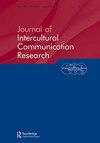不同文化背景的人在跨文化邮件交际中的礼貌:以约旦和美国为例
Q1 Social Sciences
Journal of Intercultural Communication Research
Pub Date : 2021-04-07
DOI:10.1080/17475759.2021.1913213
引用次数: 2
摘要
摘要本研究调查了来自不同文化的人在电子邮件互动中如何协商意义。该数据由两组学生撰写的120封电子邮件组成:60封由约旦大学生撰写,60封由美国大学生撰写。这些电子邮件应该是写给假想的朋友的。数据进行了定性分析,主要依靠话语分析,辅以礼貌理论,以及文化刻板印象的概念。对数据的评估表明,美国学生使用的间接策略比约旦学生多得多。这项研究的结果为这两组学生使用礼貌策略的本质提供了见解。本研究认为,在语言课堂上引入语用和跨文化交际教学对教会学生如何在外语中保持礼貌具有重要意义。本文章由计算机程序翻译,如有差异,请以英文原文为准。
(Im)politeness in Intercultural Email Communication between People of Different Cultural Backgrounds: A Case Study of Jordan and the USA
ABSTRACT This study investigates how people from different cultures negotiate meanings in email interactions. The data is composed of 120 emails written by two groups of students: sixty emails are written by Jordanian university students and sixty by American university students. The emails are supposed to be written to hypothetical friends. The data were analysed qualitatively, relying primarily on discourse analysis complemented by the theory of politeness, in addition to the notion of cultural stereotypes. The evaluation of the data indicated that the American students used much more indirect strategies than their Jordanian counterparts. The results of this study offer insights into the nature of politeness strategies as employed by the two groups of students. This study argues for the importance of including pragmatic and intercultural communication instruction in language classes to teach students how to be polite in a foreign language.
求助全文
通过发布文献求助,成功后即可免费获取论文全文。
去求助
来源期刊

Journal of Intercultural Communication Research
Social Sciences-Cultural Studies
CiteScore
2.00
自引率
0.00%
发文量
20
 求助内容:
求助内容: 应助结果提醒方式:
应助结果提醒方式:


